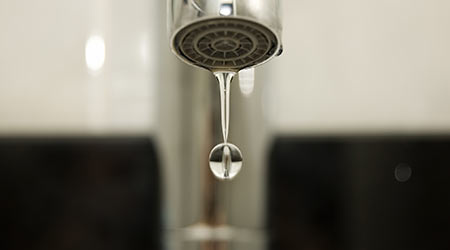
Because we are finally starting to think more about water - and ways to use it more efficiently - Waterless Co., manufacturer of no-water urinal systems, presents the following water trivia. These are subjects most of us have wondered about at one time or another. Hopefully, the following brings some understanding:
• In the U.S., planners assume we will each use at least 70 gallons of water per day in the home and 35 gallons per day in the office.
• The average household uses about 300 gallons of water per day; 70 percent is used indoors and 30 percent is used outdoors.
• In urban areas, 75 percent of all water is used in homes.
• In the home, roughly 60 percent of all water is used to flush toilets, run showers and faucets.
• In an office, 40 percent of all water is used in restrooms, mostly for toilets and traditional urinals.
• The average American uses 9,000 gallons of water annually to flush 230 gallons of waste.
• Water wasted due to leaks totals about one trillion gallons annually in the U.S.
• New studies indicate that one waterless urinal saves 30,000 to 45,000 gallons of water per year, sometimes more depending on where it is installed.
• As to where the urine goes when using a no-water urinal, it flows below the trap/cylinder at the base of the urinal into a "U" tube to block odors; as it accumulates, it flows down a standard sewer pipe.
• A top-loading washing machine uses 30 gallons of water per wash.
• A front-loading washing machine uses 10 gallons of water per wash.
• It takes energy to deliver water. A faucet running for five minutes uses about as much energy as a 60-watt light bulb that has been turned on for 14 hours.
• Our peak year for water consumption in the U.S. was 1980 in which we used 440 billion gallons of water per day (BGD); by 2010 that declined to 350 BGD, due to water efficiency measures and new technologies.
• Water consumption increases with our incomes; a household making $150,000 annually will use about 30 percent more water than a household making $75,000 per year.

 The Down and Dirty on Cleaning in Virus Season
The Down and Dirty on Cleaning in Virus Season How Surfactant Use is Expanding in Commercial Cleaning
How Surfactant Use is Expanding in Commercial Cleaning Clean Buildings Conference
Clean Buildings Conference